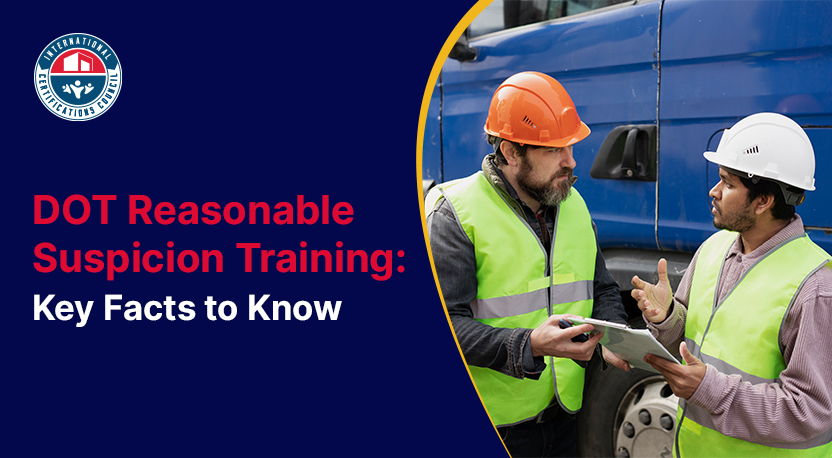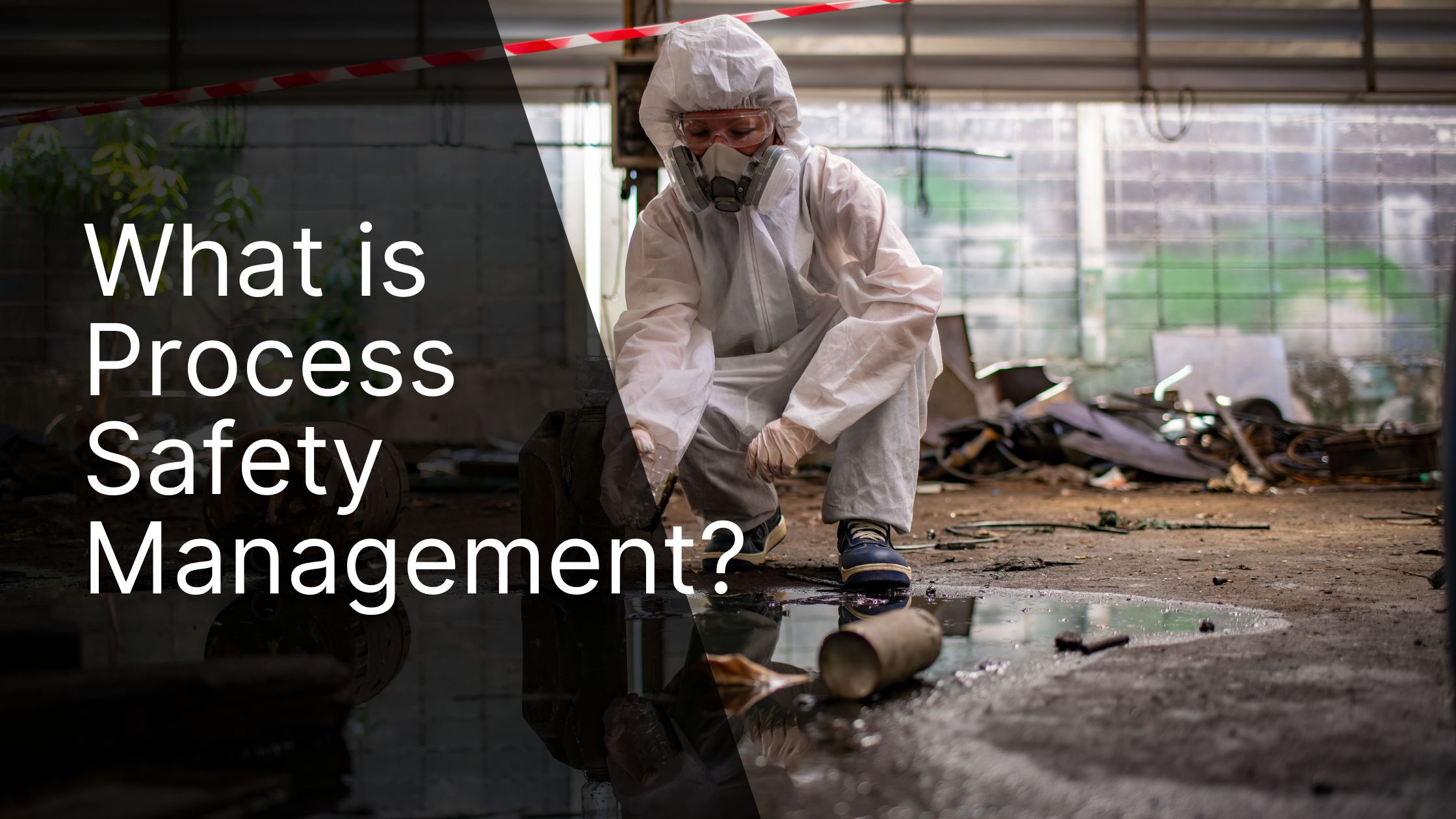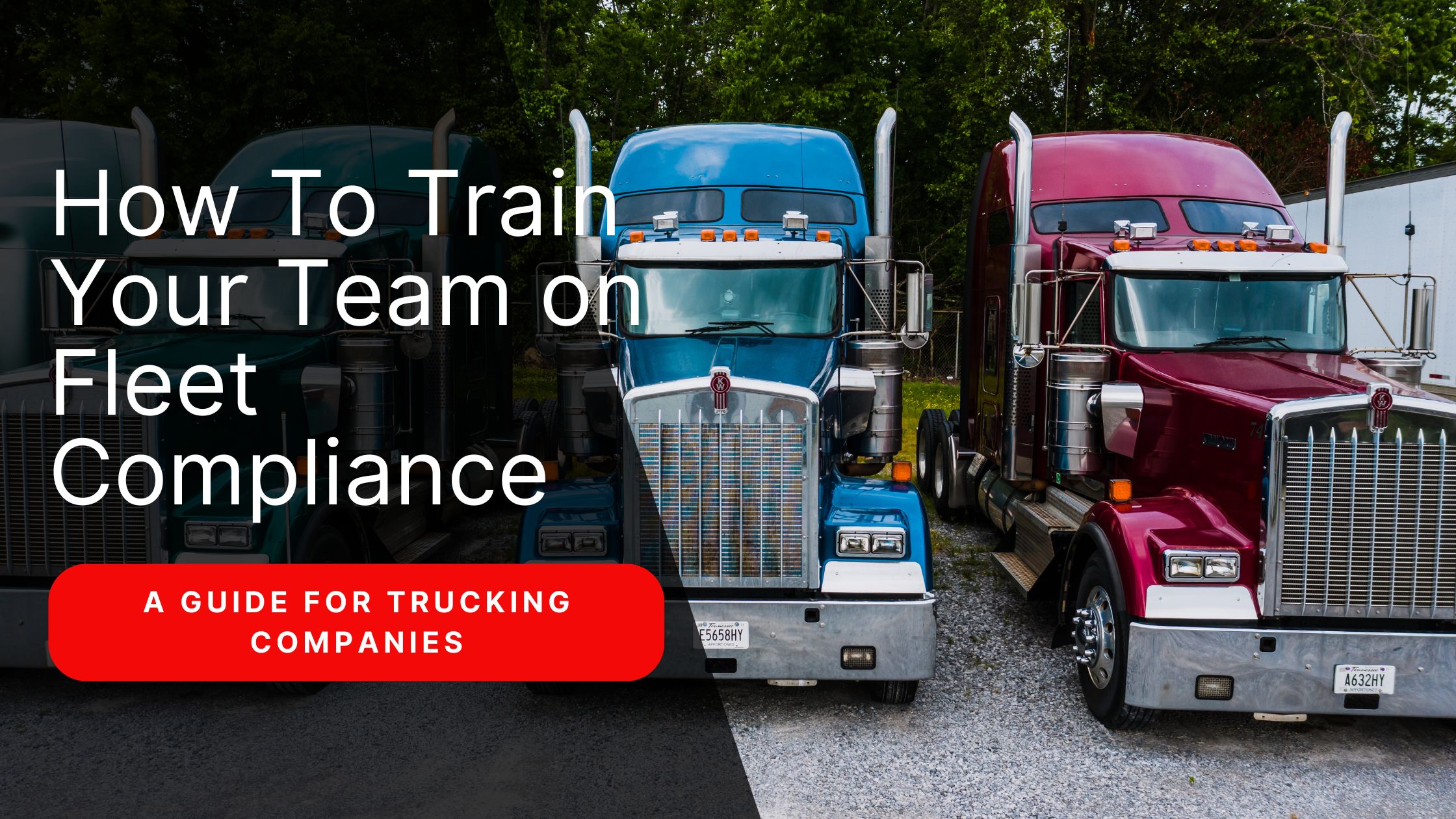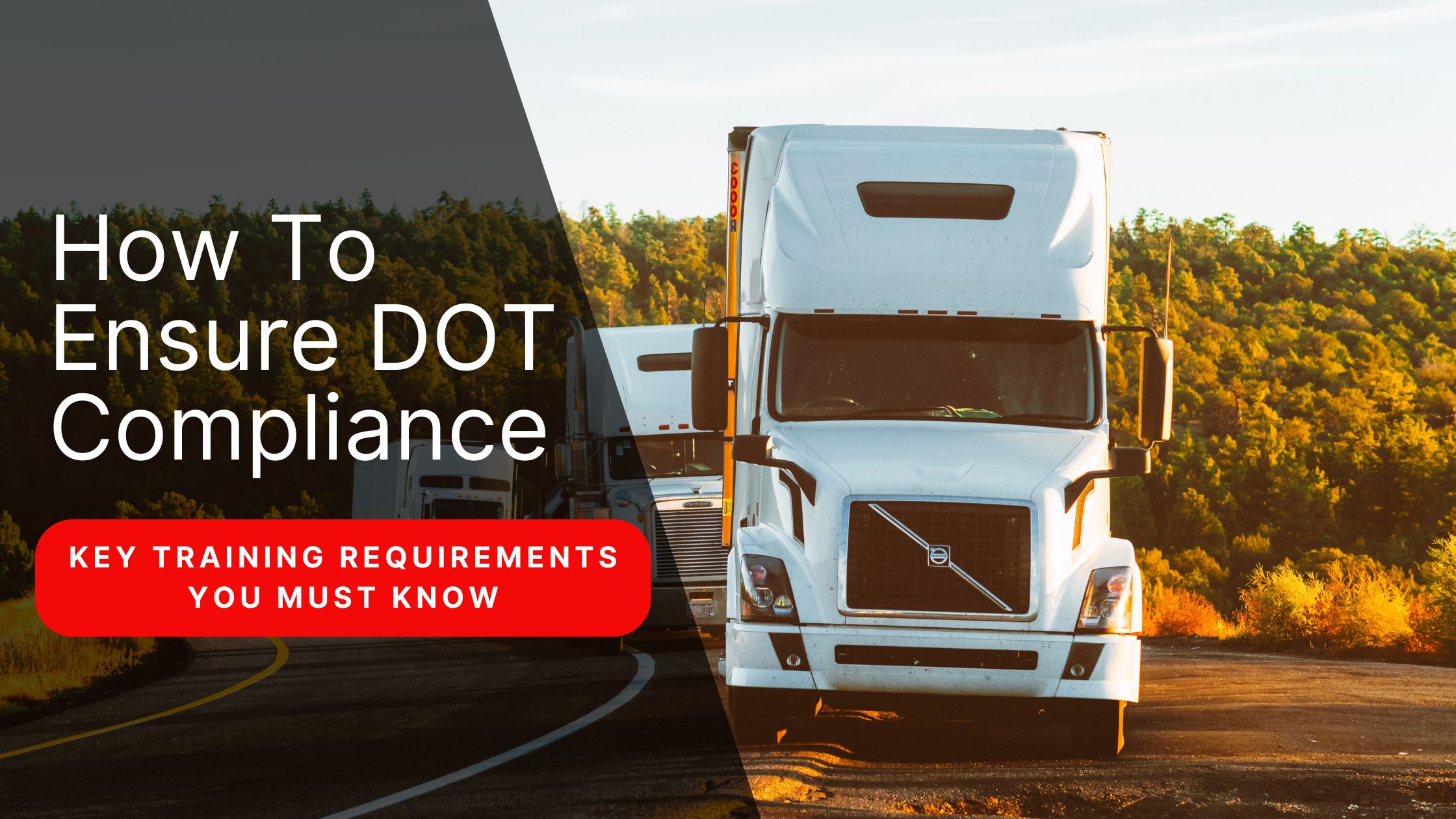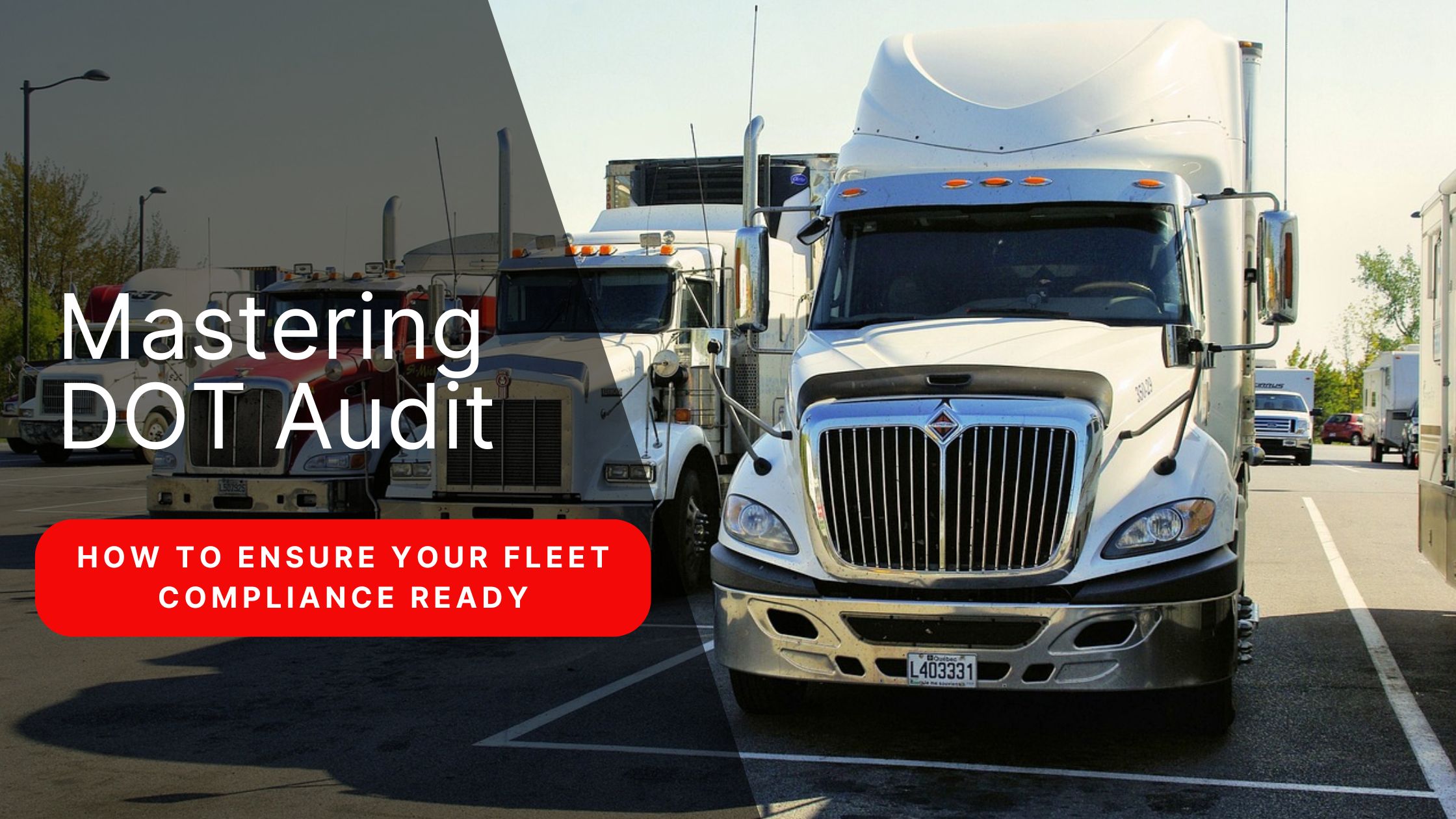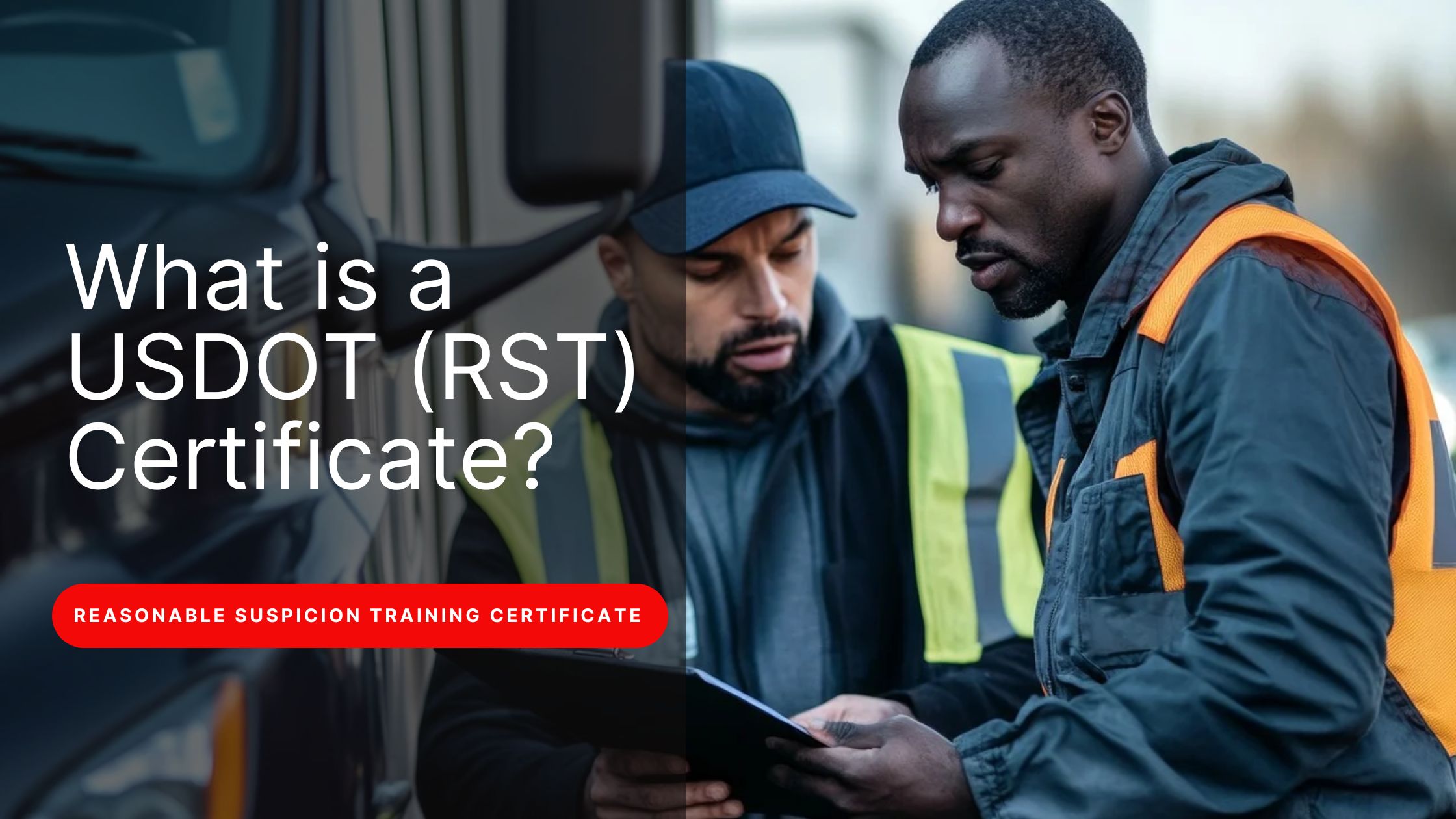Picture this: One of your best drivers is stopped for a standard check.
Everything appears well until the officer discovers a neglected maintenance concern. Your truck suddenly breaks down, your driver is stuck, and you might be fined heavily. Frustrating, right?
In the transportation industry, where one little error can result in significant consequences, this situation is common. The issue goes beyond merely penalties or downtime to include guaranteeing public safety, driver safety, and the reputation of your business.
The solution? Regular DOT compliance training for your truck drivers. Keep reading to know why investing in DOT compliance training is just not a legal obligation but a wise decision for your trucking business
Understanding DOT Compliance for Trucking Companies
What is DOT compliance? The U.S. Department of Transportation (DOT) is the backbone of any trucking company. Running a trucking company means you have to go by the established DOT policies and requirements to ensure your drivers and trucks remain safe on the road.
Ensuring DOT compliance protects the life of your drivers and everyone else you share the road with, not merely preserves order in your documentation. Keeping current with the complicated and often changing rules is difficult.
Inspectors may physically test your vehicles, visually check them, and even go over lab findings. They will examine driving logs, review your repair history, and review your maintenance records. They will also go over any records about accidents or incidents.
This ensures that your business operates under Federal Motor Carrier Safety Administration (FMCSA) guidelines.
FMCSA Regulations and Requirements
Setting the guidelines that maintain the transportation sector safe depends mostly on the FMCSA. These rules address many facets of the business, hence drivers and trucking businesses have to know and follow them.
Here are some key FMCSA regulations you should be familiar with:
1. Driver Qualifications
Your drivers require more than simply a commercial driver's license (CDL ). Regarding driver training, experience, and medical credentials, the FMCSA enforces tight policies.
For example, drivers must be routinely physically fit to run a commercial motor vehicle (CMV). This is more than simply form; a driver's health greatly influences their capacity for safe driving.
2. Hours of Service (HOS)
In the trucking sector, a major factor causing accidents is fatigue. The FMCSA has created HOS regulations to counter this, restricting the hours a driver can be on duty and requiring rest periods.
To record their driving hours, drivers must utilize electronic logging devices (ELDs.). Frequent compliance training signifies that your drivers follow these guidelines, lowering the risk of events connected to tiredness.
3. Vehicle Maintenance
The lifeblood of your company is your vehicles, so maintaining them is absolutely vital. To ensure that CMVs are in safe running order, the FMCSA mandates frequent inspections and maintenance.
This covers anything from tires and brakes to lights and other vital parts. Ignoring rules can result in out-of-service orders, wasting time and money for your business.
4. Drug and Alcohol Testing
In the transportation sector, substance misuse presents a major issue. With rigorous policies for testing techniques, reporting, and follow-up, the FMCSA mandates required drug and alcohol testing for drivers.
Regular drug and alcohol training ensures that your drivers value these tests and the repercussions of failing them.
Consequences of Non-Compliance
The costs of non-compliance can be staggering, not just in terms of money but also in lost time, productivity, and reputation.
Here’s a closer look at what non-compliance could cost your business:
1. Fines
The FMCSA has enforced large penalties and acted against transportation firms breaking the regulations.
The FMCSA fined transportation offenders in 2023 for violations, including the first offense for alcohol prohibition, which climbed from $3,471 to $3,740. One violation might mean hefty fines for individual businesses, so maintaining compliance is essential.
2. Out-of-Service Costs
An out-of-service (OOS) order can ruin your business. Being out of service for a vehicle or driver throws off your plans and costs money.
Based on the time involved, OOS expenses vary from $5,000 to $100,000 per hour. This excludes the costs of repairs, inspections, or the loss of productivity. Frequent compliance training helps avoid these expensive disruptions.
3. Legal Procedures
Ignoring the rules might have one of the most expensive consequences—legal fights. Usually, juries hold trucking companies accountable for accidents, particularly in cases with evidence of reckless behavior.
Your business can face massive legal expenses—which might run into tens of thousands of dollars—even if your driver did everything correctly. Regular compliance training ensures your drivers are well-trained and follow all the guidelines, strengthening your defense.
Importance of Compliance Training for Truckers
Regular compliance training is not just about ticking a box; it’s about creating a culture of safety and responsibility within your company. Here are six key reasons why regular compliance training is essential:
1. Keeping Up with Regulations
FMCSA rules are constantly being updated. What was compliant last year might not be compliant this year. Your drivers will always know the latest rules if they get training on a regular basis. This will help you avoid fines and other punishments.
2. Preventing Accidents
The main goal of compliance training is to keep people safe.
You can lower the risk of accidents by teaching your drivers safe driving habits, keeping their vehicles in good shape, and working within their hours of service. A skilled driver is a safe driver, which is suitable for your business and everyone else on the road.
3. Reducing Costs
Non-compliance costs a lot. Due to fines, legal fees, and orders to not do business, the costs can add up fast. You can avoid these costs by making sure that your drivers and vehicles always meet all regulatory requirements.
4. Improving Efficiency
Compliance training helps your drivers be more efficient in addition to keeping them safe. Knowing the rules promises fewer errors, reduced downtime, and more seamless operations. This will lead to better on-time performance and happier clients.
5. Enhancing Reputation
One of the most important things about your business is its image. One problem with compliance can hurt that company's reputation, which can cause them to lose business. Making sure that your drivers always follow safety rules through regular compliance training helps protect your business's reputation.
6. Building Driver Confidence
An experienced driver is a confident one. Frequent compliance training offers your drivers the information and abilities required to manage any situation on the road. With this much trust, you can make better choices, make fewer mistakes, and run a safer, more effective business.
Conclusion
Investing in DOT compliance training is not just a regulatory requirement but also a wise commercial move for drivers or trucking companies. Many DOT compliance training courses now accessible online provide thorough compliance instruction catered to the requirements of the trucking industry.
Enrolling in these programs not only ensures that your organization remains FMCSA compliant but also helps shield it from the expensive consequences of non-compliance.
Don't wait to act until you have a fine, an out-of-service order, or a legal battle to take action. Start investing in regular compliance training today, and you’ll see the benefits in safer drivers, lower costs, and a more substantial reputation in the industry.

